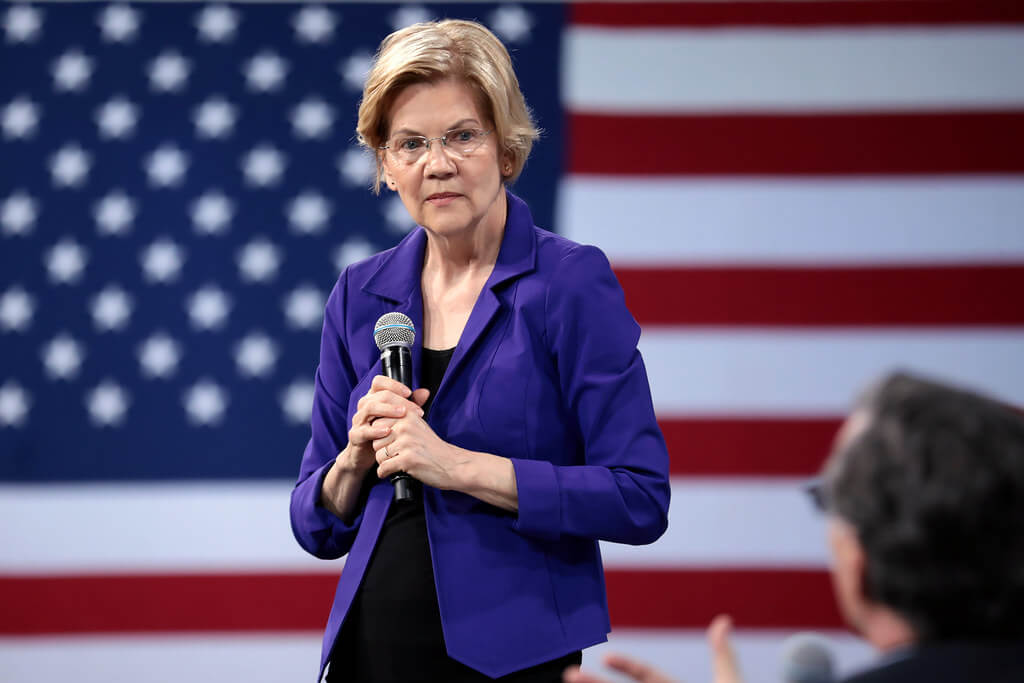Ripple Supports John Deaton’s Senate Bid Against Elizabeth Warren
17.07.2024 21:00 1 min. read Alexander Stefanov
John Deaton, known for his advocacy in the crypto community and his legal battles involving Ripple, is now backed by Ripple itself in his bid for the Massachusetts Republican senatorial primary.
Deaton, a prominent figure in mesothelioma law, has gained attention for his defense of Ripple and his establishment of CryptoLaw, a firm specializing in cryptocurrency legal issues.
Ripple contributed $1 million to the Commonwealth Unity Fund supporting Deaton’s campaign, with lawyer James Murphy also contributing $50,000.
This political action committee (PAC) has already directed $30,000 towards opposing Senator Elizabeth Warren, a noted critic of cryptocurrencies.
Deaton’s advocacy extends beyond his legal practice, as seen in his support for Coinbase against the SEC’s Howey test interpretation. He argues that the SEC’s blanket classification of digital tokens as securities undermines the nuanced nature of blockchain transactions.
In the primary race, Deaton faces competition from blockchain entrepreneur Ian Cain and engineer Robert Antonellis, among others, while Senator Cynthia Lummis supports Cain’s candidacy. Despite the contenders, Warren remains a formidable candidate based on current polling data.
-
1
UK Regulators Unveil PISCES – A New Era for Private Share Trading
11.06.2025 15:00 2 min. read -
2
Polygon Breaks from Decentralization as Sandeep Nailwal Assumes Full Control
11.06.2025 20:00 2 min. read -
3
KuCoin Plants Its Flag in Bangkok With a Licensed Thai Exchange
14.06.2025 13:00 1 min. read -
4
Nvidia CEO Urges UK to Invest in AI Infrastructure or Risk Falling Behind
10.06.2025 9:00 1 min. read -
5
Why Gold Could Be the Smart Play Amidst US Debt Surge
11.06.2025 11:00 1 min. read
What Brian Armstrong’s New Stats Reveal About Institutional Crypto Growth
Coinbase CEO Brian Armstrong has spotlighted a significant acceleration in institutional crypto adoption, driven largely by the surging popularity of exchange-traded funds and increased use of Coinbase Prime among major corporations.
What Will Happen With the Stock Market if Trump Reshapes the Fed?
Jefferies chief market strategist David Zervos believes an upcoming power shift at the Federal Reserve could benefit U.S. equity markets.
U.S. Bank Advises Clients to Drop These Cryptocurrencies
Anchorage Digital, a federally chartered crypto custody bank, is urging its institutional clients to move away from major stablecoins like USDC, Agora USD (AUSD), and Usual USD (USD0), recommending instead a shift to the Global Dollar (USDG) — a stablecoin issued by Paxos and backed by a consortium that includes Anchorage itself.
Vitalik Buterin Warns Digital ID Projects Could End Pseudonymity
Ethereum co-founder Vitalik Buterin has voiced concerns over the rise of zero-knowledge (ZK) digital identity projects, specifically warning that systems like World — formerly Worldcoin and backed by OpenAI’s Sam Altman — could undermine pseudonymity in the digital world.
-
1
UK Regulators Unveil PISCES – A New Era for Private Share Trading
11.06.2025 15:00 2 min. read -
2
Polygon Breaks from Decentralization as Sandeep Nailwal Assumes Full Control
11.06.2025 20:00 2 min. read -
3
KuCoin Plants Its Flag in Bangkok With a Licensed Thai Exchange
14.06.2025 13:00 1 min. read -
4
Nvidia CEO Urges UK to Invest in AI Infrastructure or Risk Falling Behind
10.06.2025 9:00 1 min. read -
5
Why Gold Could Be the Smart Play Amidst US Debt Surge
11.06.2025 11:00 1 min. read


